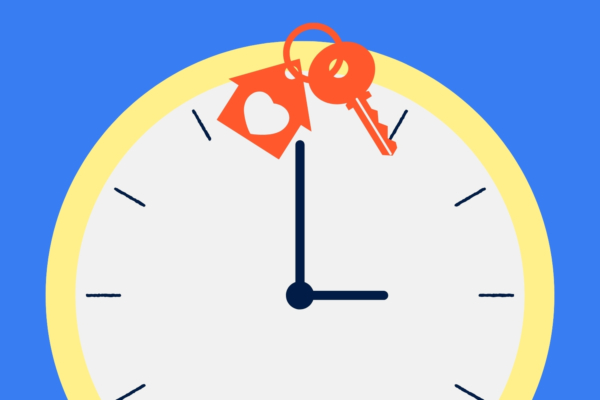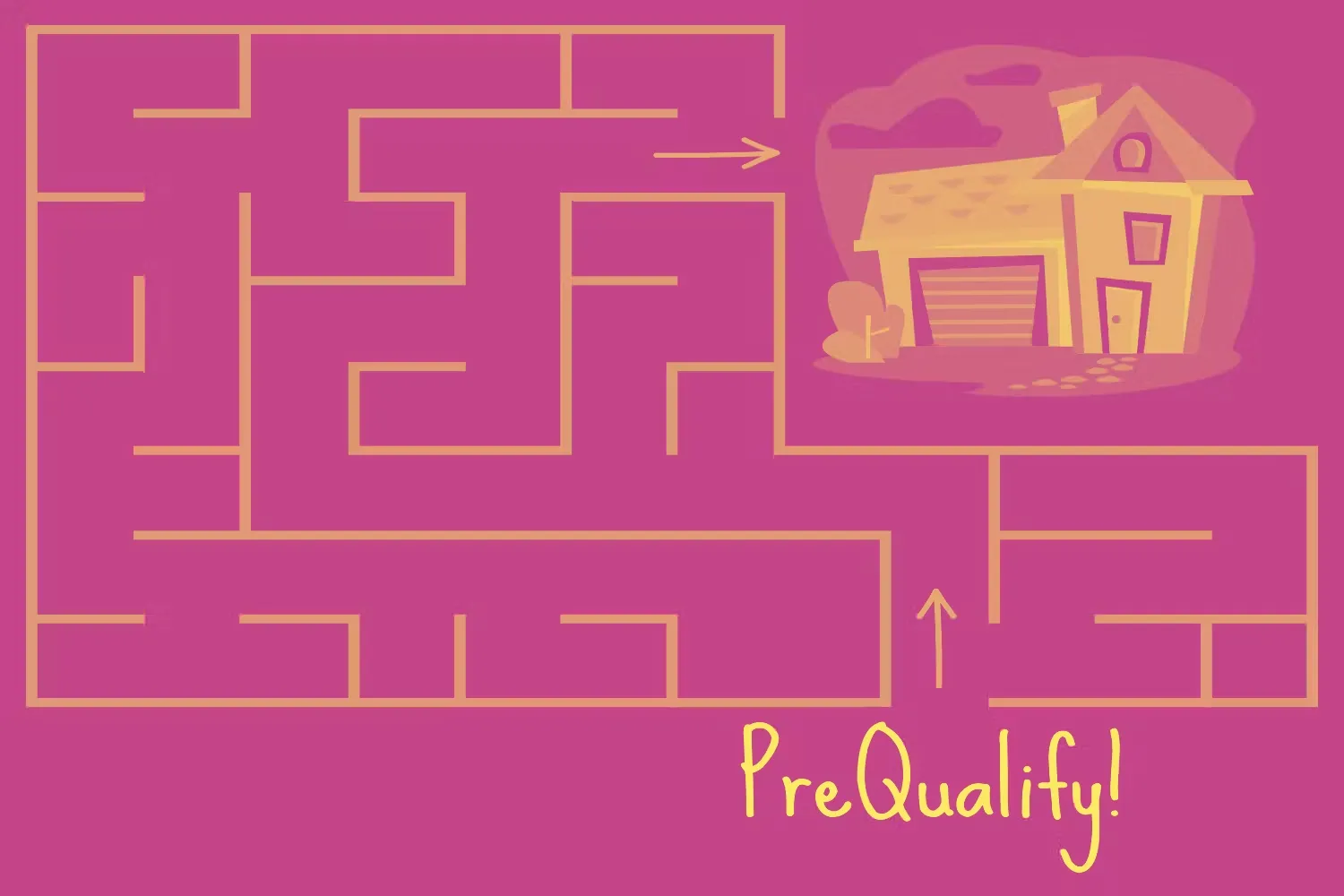
Before House Hunting, Get Your Prequalification!

Are you in the market for a new house? While this step is very exciting, it can also be a little daunting. Where do you even start?
After you get your budget in line, the very next step should be getting prequalified for a mortgage. Look around to see what benefits and rates lenders are offering, and then ask about their prequalification process.
Why Get Prequalified?
When you get prequalified with a lender, they’ll give you a letter with an estimated mortgage amount. This letter is a crucial part of the homebuying process for these reasons:
- It gives you an idea of what your budget actually can be for a home.
- It gives you the opportunity to discover anything in your credit history that might prevent you from getting a good mortgage rate.
- When you take the letter with you to open houses, it signals to real estate agents that you’re a serious buyer.
A prequalification letter sets you up for success, especially in hot markets where homes are going quickly. It’s a great way to make sure you’re ready to buy a home!
Get Prequalified Today
Prequalification doesn’t have to be hard. Begin your journey with Amplify now!
How Does Prequalification Work?
While every lender is different, this is the general process:
- The lender will look at your credit history, examining your report.
- They’ll ask questions about your income and employment history.
- You’ll have an opportunity to ask any questions about mortgages or the overall process.
- You and your loan officer will discuss loan options and budgeting.
- You and your loan officer will also discover and discuss any issues that might prevent you from qualifying for a mortgage.
- By the end of the prequalification process, your loan officer will give you an estimate of the maximum amount you can borrow—helpful when house-hunting!
Please note: prequalification is just an estimate—it’s not a guarantee that you will actually be approved for this amount. This is why it’s important to disclose everything to your loan officer, so they can give you the most accurate estimate possible. If you aren’t transparent about things like outstanding loans or income status, you will not receive an accurate prequalification, and you could possibly be denied for your mortgage when you officially apply.
Prequalification vs. Preapproval
You might be hearing another word as you start your research on homebuying: preapproval. While they have similar meanings, getting prequalified and preapproved for a mortgage are not the same thing. Here are the key differences.
Prequalification
Prequalification is when you provide information on your finances and get an estimate of what you might be able to borrow. It is an opportunity to learn about different mortgage options and work with a lender to discern the best fit for your needs and goals. Prequalification relies mostly on self-reported information, meaning that it’s an estimate and not a guarantee. A prequalification letter does not represent an actual commitment from the lender to lend you money.
Preapproval
A mortgage preapproval is a letter from a lender that indicates the type and amount of loan that you qualify for. While a prequalification is mainly a way to get an idea of your options, a preapproval is essentially a commitment to lend.
In the preapproval process, the lender evaluates your financial history, looking at things like:
- Credit score
- Credit history
- Debt-to-income ratio
- Income
- Employment history
The main difference between prequalification and preapproval is the self-reporting characteristic: prequalification relies on the borrower providing accurate information, while preapproval involves a lender pulling all of a borrower’s information from relevant databases.
Do You Have to Get Prequalified?
You don’t have to get prequalified, no. But getting prequalified is typically an easy and straightforward process, and it gives you a lot of knowledge to leverage in your search for a home. The time it takes to get prequalified before you go house-hunting can make a huge difference in the speed and success of your homebuying journey. Here are some downsides to not getting prequalified.
You Won’t Really Have an Idea of Your Budget
Beginning the house-hunting process without a ballpark estimate of your budget could set you uo for disappointment. When you get prequalified, you’re providing your lender with basic financial information, like your household income and debt, and you’ll receive an estimated price range for a home. Having this price range in mind will give you a jumping-off point for looking for homes within that budget, so you don’t get sticker shock or waste your time looking at homes that are totally out of your budget.
Your Position Will Be Weakened as a Buyer
Getting prequalified for a mortgage lets the seller know that you mean business. Often, sellers and agents will insist on seeing a prequalification letter before they let you see the home. This is because, in a hot market, sellers don’t want to take the time to prepare and show their home to someone who cannot afford it, or who has no intention of buying it.
If you do find the perfect house and want to put in an offer, it won’t be taken as seriously without a prequalification letter. In a competitive market, your seriousness as a buyer is a critical metric to uphold.
Your Mortgage May Be Denied, or Much Lower Than Planned
As mentioned above, having confidence that your mortgage will be approved gives you a lot of leverage in the homebuying process. But it also ensures that your mortgage approval will go smoothly. Without getting prequalified, you have no real idea of whether or not you have good chances of getting approved for the amount you want.
- You could be overestimating the amount you can borrow. For example, you finally find the house that fits all of your needs, looks great, and has a reasonable price. You put in an offer, you’re already decorating it in your head—and then you find out your mortgage application was denied.
- You could be underestimating the amount you can borrow. For example, you shop around a lot, but all the houses are just a little out of your budget. You’re frustrated because you really want to buy a home—but what you don’t know is that a mortgage lender would approve you for $20,000 more than you think, making all those homes within reach.
You Won’t Be Aware of Your Options
Prequalification is not as formal of a process as preapproval, but it still gives you the opportunity to provide basic information to a lender, like income, assets, and liabilities. Once the lender has this information, they can identify and share the different types of mortgages that are a good fit for you. Your lender can also help you find any first-time homebuyer programs or assistance you might qualify for. If you’re worried about any aspect of the homebuying process, like how much your down payment has to be, or how different mortgage types work, your loan officer can walk you through all of these answers.
Get Your Prequalification
Not getting prequalified for a mortgage can present a lot of challenges in the homebuying process. By taking just a few minutes of time to self-report your financial information and get a prequalification letter, you will greatly improve the chances of securing your dream home quickly and smoothly.
Looking for a local mortgage lender?
Learn more about Amplify’s mortgage products and apply today!


